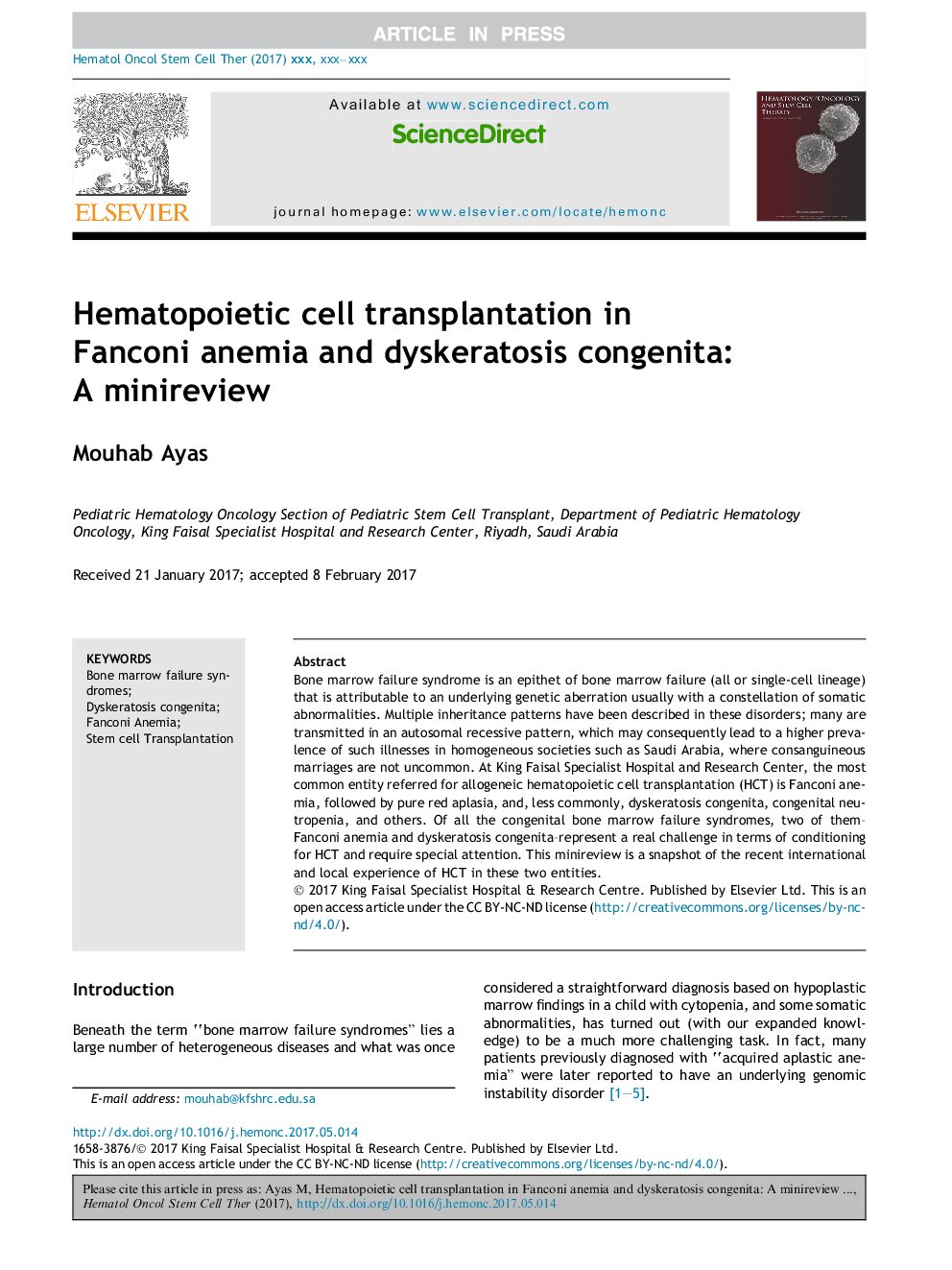| Article ID | Journal | Published Year | Pages | File Type |
|---|---|---|---|---|
| 8452986 | Hematology/Oncology and Stem Cell Therapy | 2017 | 5 Pages |
Abstract
Bone marrow failure syndrome is an epithet of bone marrow failure (all or single-cell lineage) that is attributable to an underlying genetic aberration usually with a constellation of somatic abnormalities. Multiple inheritance patterns have been described in these disorders; many are transmitted in an autosomal recessive pattern, which may consequently lead to a higher prevalence of such illnesses in homogeneous societies such as Saudi Arabia, where consanguineous marriages are not uncommon. At King Faisal Specialist Hospital and Research Center, the most common entity referred for allogeneic hematopoietic cell transplantation (HCT) is Fanconi anemia, followed by pure red aplasia, and, less commonly, dyskeratosis congenita, congenital neutropenia, and others. Of all the congenital bone marrow failure syndromes, two of them-Fanconi anemia and dyskeratosis congenita-represent a real challenge in terms of conditioning for HCT and require special attention. This minireview is a snapshot of the recent international and local experience of HCT in these two entities.
Related Topics
Life Sciences
Biochemistry, Genetics and Molecular Biology
Cancer Research
Authors
Mouhab Ayas,
